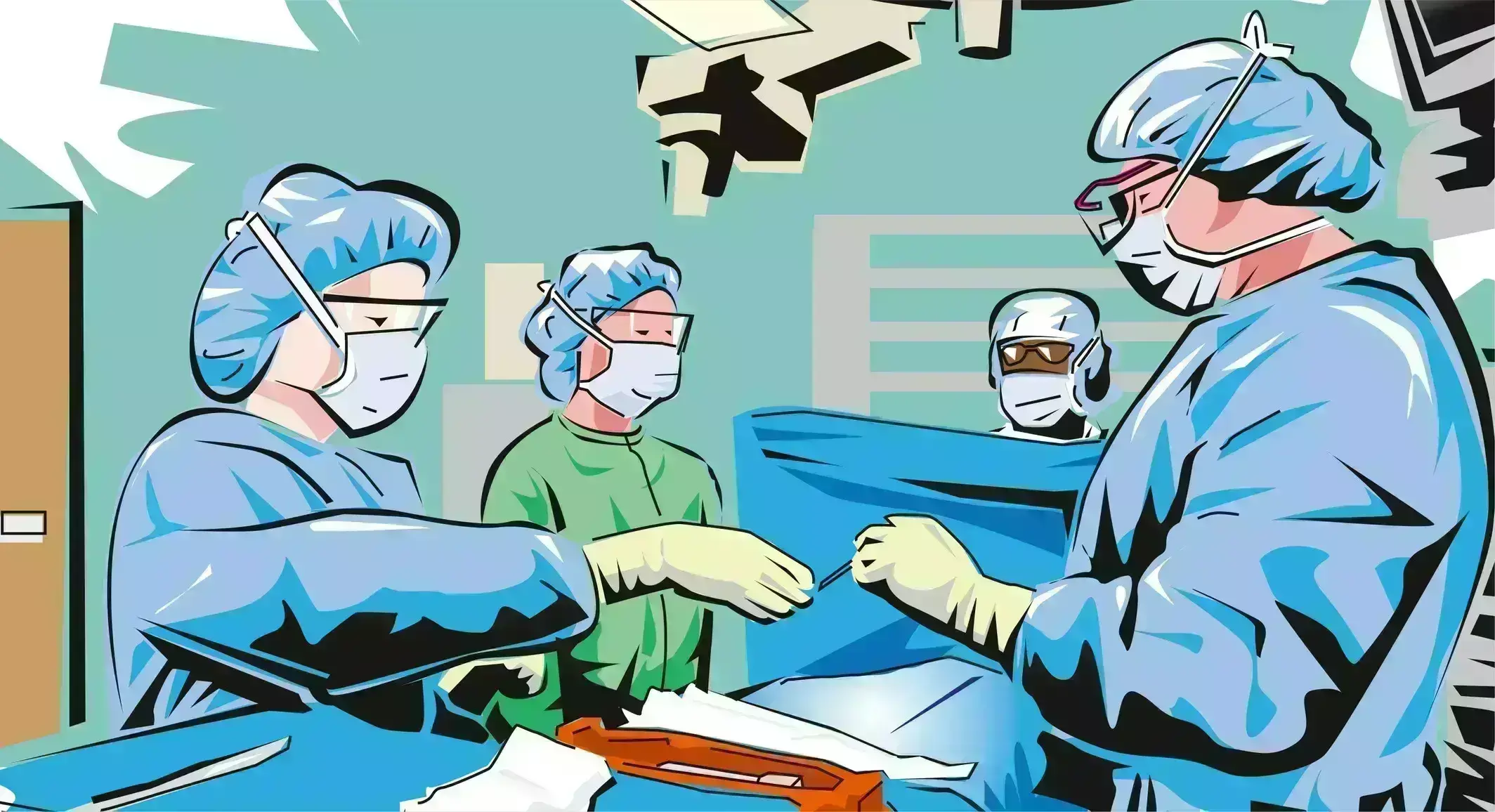- Home
- Medical news & Guidelines
- Anesthesiology
- Cardiology and CTVS
- Critical Care
- Dentistry
- Dermatology
- Diabetes and Endocrinology
- ENT
- Gastroenterology
- Medicine
- Nephrology
- Neurology
- Obstretics-Gynaecology
- Oncology
- Ophthalmology
- Orthopaedics
- Pediatrics-Neonatology
- Psychiatry
- Pulmonology
- Radiology
- Surgery
- Urology
- Laboratory Medicine
- Diet
- Nursing
- Paramedical
- Physiotherapy
- Health news
- Fact Check
- Bone Health Fact Check
- Brain Health Fact Check
- Cancer Related Fact Check
- Child Care Fact Check
- Dental and oral health fact check
- Diabetes and metabolic health fact check
- Diet and Nutrition Fact Check
- Eye and ENT Care Fact Check
- Fitness fact check
- Gut health fact check
- Heart health fact check
- Kidney health fact check
- Medical education fact check
- Men's health fact check
- Respiratory fact check
- Skin and hair care fact check
- Vaccine and Immunization fact check
- Women's health fact check
- AYUSH
- State News
- Andaman and Nicobar Islands
- Andhra Pradesh
- Arunachal Pradesh
- Assam
- Bihar
- Chandigarh
- Chattisgarh
- Dadra and Nagar Haveli
- Daman and Diu
- Delhi
- Goa
- Gujarat
- Haryana
- Himachal Pradesh
- Jammu & Kashmir
- Jharkhand
- Karnataka
- Kerala
- Ladakh
- Lakshadweep
- Madhya Pradesh
- Maharashtra
- Manipur
- Meghalaya
- Mizoram
- Nagaland
- Odisha
- Puducherry
- Punjab
- Rajasthan
- Sikkim
- Tamil Nadu
- Telangana
- Tripura
- Uttar Pradesh
- Uttrakhand
- West Bengal
- Medical Education
- Industry
BIHAP improves glucose regulation in patients with insulin-dependent diabetes after total pancreatectomy

Researchers have found in a new study that the use of bihormonal artificial pancreas (BIHAP) among patients who developed diabetes after pancreatectomy was linked to significantly increased time in euglycemia when compared to patients using current diabetes care. Further majority of patients in the study wished to continue the BIHAP treatment, if possible, on the condition that the number of alarms given by BIHAP and size of the device would be reduced.
Glucose control in patients after total pancreatectomy is problematic because of the complete absence of α- and β-cells, leading to impaired quality of life. A novel, bihormonal artificial pancreas (BIHAP), using both insulin and glucagon, may improve glucose control, but studies in this setting are lacking.
A study was conducted to assess the efficacy and safety of the BIHAP in patients after total pancreatectomy.
This randomized crossover clinical trial compared the fully closed-loop BIHAP with current diabetes care (ie, insulin pump or pen therapy) in 12 adult outpatients after total pancreatectomy. Patients were recruited between August 21 and November 16, 2020. This first-in-patient study began with a feasibility phase in 2 patients. Subsequently, 12 patients were randomly assigned to 7-day treatment with the BIHAP (preceded by a 5-day training period) followed by 7-day treatment with current diabetes care, or the same treatments in reverse order. Statistical analysis was by Wilcoxon signed rank and Mann-Whitney U tests, with significance set at a 2-sided P < .05.
Results:
- In total, 12 patients were randomly assigned, of whom 3 did not complete the BIHAP phase and 1 was replaced.
- The time spent in euglycemia was significantly higher during treatment with the BIHAP than current diabetes care
- In addition, the time spent in hypoglycemia was lower with the BIHAP
- No serious adverse events occurred.
Thus, patients using the BIHAP after total pancreatectomy experienced an increased percentage of time in euglycemia and a reduced percentage of time in hypoglycemia compared with current diabetes care, without apparent safety risks. Larger randomized trials, including longer periods of treatment and an assessment of quality of life, should confirm these findings.
Reference:
van Veldhuisen CL, Latenstein AEJ, Blauw H, et al. Bihormonal Artificial Pancreas With Closed-Loop Glucose Control vs Current Diabetes Care After Total Pancreatectomy: A Randomized Clinical Trial. JAMA Surg. Published online September 07, 2022. doi:10.1001/jamasurg.2022.3702
Keywords:
Bihormonal, artificial, Pancreas, Closed-Loop, Glucose, Control, Current, Diabetes, Care, After, Total, Pancreatectomy, Charlotte L. van Veldhuisen, Anouk E. J. Latenstein, Helga Blauw, Lyan B. Vlaskamp, Michel Klaassen, Daan J. Lips, Bert A. Bonsing, Erwin van der Harst, Martijn W. J. Stommel, Marco J. Bruno, Hjalmar C. van Santvoort, Casper H. J. van Eijck, Susan van Dieren, Olivier R. Busch, JAMA Surgery
Dr. Shravani Dali has completed her BDS from Pravara institute of medical sciences, loni. Following which she extensively worked in the healthcare sector for 2+ years. She has been actively involved in writing blogs in field of health and wellness. Currently she is pursuing her Masters of public health-health administration from Tata institute of social sciences. She can be contacted at editorial@medicaldialogues.in.
Dr Kamal Kant Kohli-MBBS, DTCD- a chest specialist with more than 30 years of practice and a flair for writing clinical articles, Dr Kamal Kant Kohli joined Medical Dialogues as a Chief Editor of Medical News. Besides writing articles, as an editor, he proofreads and verifies all the medical content published on Medical Dialogues including those coming from journals, studies,medical conferences,guidelines etc. Email: drkohli@medicaldialogues.in. Contact no. 011-43720751


